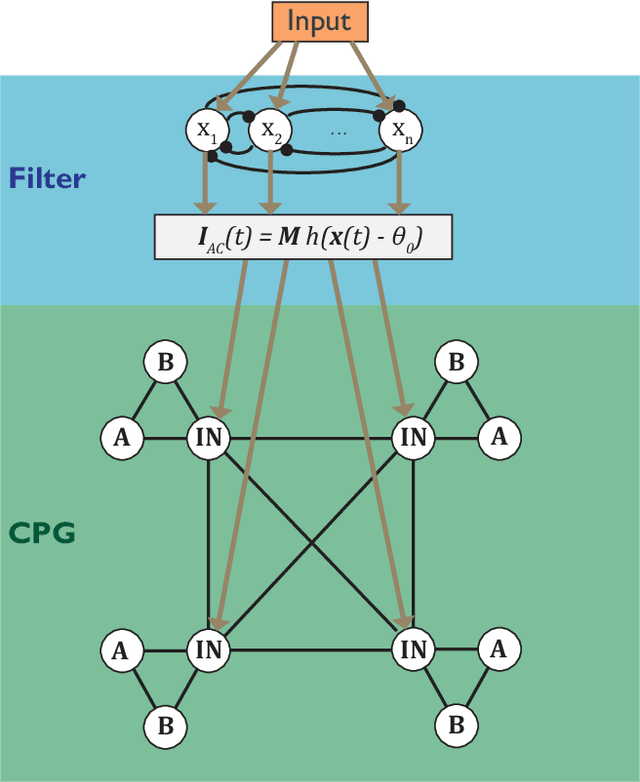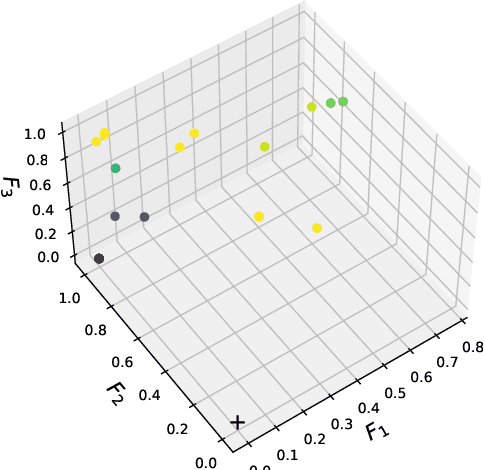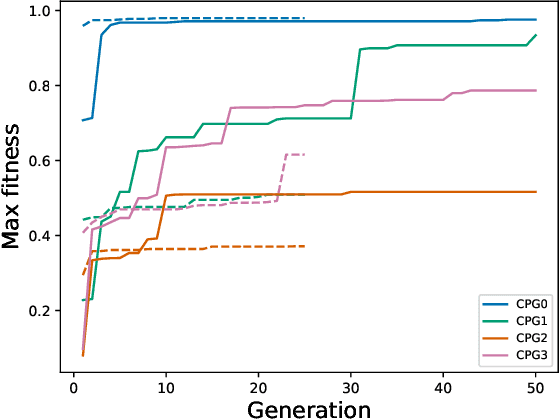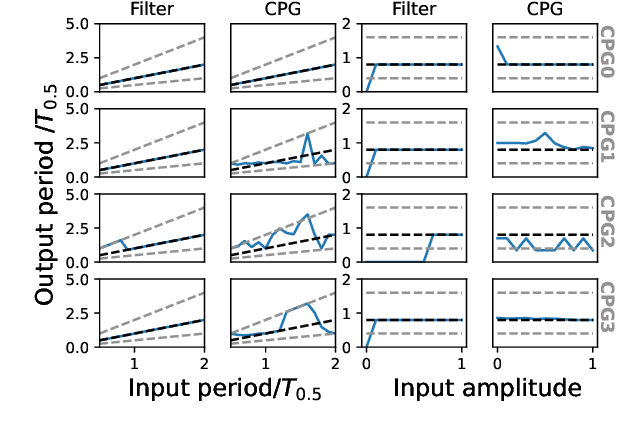Rapid rhythmic entrainment in bio-inspired central pattern generators
Paper and Code
Jun 03, 2022



Entrainment of movement to a periodic stimulus is a characteristic intelligent behaviour in humans and an important goal for adaptive robotics. We demonstrate a quadruped central pattern generator (CPG), consisting of modified Matsuoka neurons, that spontaneously adjusts its period of oscillation to that of a periodic input signal. This is done by simple forcing, with the aid of a filtering network as well as a neural model with tonic input-dependent oscillation period. We first use the NSGA3 algorithm to evolve the CPG parameters, using separate fitness functions for period tunability, limb homogeneity and gait stability. Four CPGs, maximizing different weighted averages of the fitness functions, are then selected from the Pareto front and each is used as a basis for optimizing a filter network. Different numbers of neurons are tested for each filter network. We find that period tunability in particular facilitates robust entrainment, that bounding gaits entrain more easily than walking gaits, and that more neurons in the filter network are beneficial for pre-processing input signals. The system that we present can be used in conjunction with sensory feedback to allow low-level adaptive and robust behaviour in walking robots.
 Add to Chrome
Add to Chrome Add to Firefox
Add to Firefox Add to Edge
Add to Edge